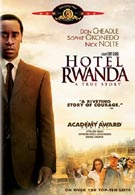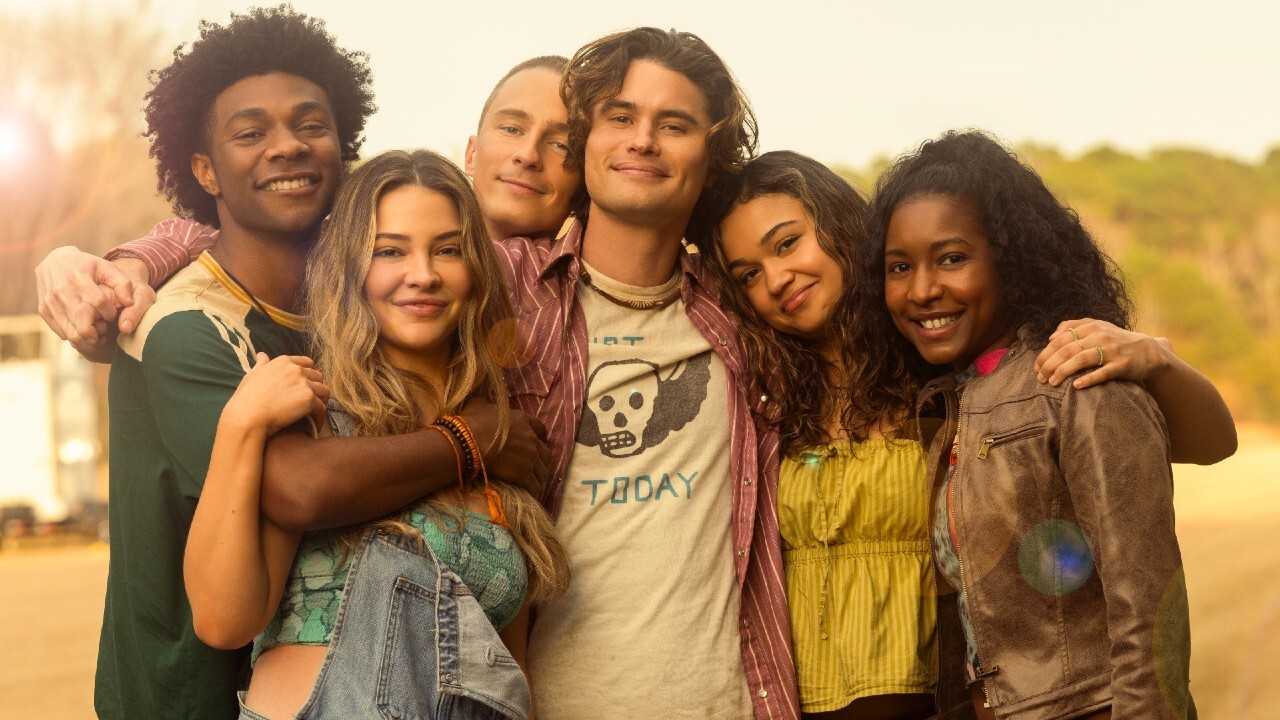There are great films and then there are important films. The former are those movies that entertain and engage us, leaving unforgettable moments forever locked into our hearts, minds and imaginations. The latter are the type everyone should see, regardless of their entertainment value, because their content explores matters vital to the understanding the human experience and the realities of the world around us. Hotel Rwanda is both. To understand Hotel Rwanda, you have to understand the true-story circumstances of the events surrounding the film. Two native peoples exist in the nation of Rwanda, separated by a distinction so obscure and petty that it almost seems unreal. There are no ancestral or religious differences between the Hutu and Tutsi peoples of Rwanda, only ethno-political designations given them by a European government decades ago. In 1994, tensions between the two groups came to a head, leading to a civil war in which groups of radical Hutus sought the complete obliteration of the Tutsi people. All told, nearly one million Tutsi people were slaughtered, most by machete, before rebel forces brought the war to an end.
The story of the film is Paul Rusesabagina’s. A Hutu, he is the assistant manager at one of Rwanda’s finest 4 star hotels. He is forced into the midst of a civil war where his Tutsi wife and family are hunted by an army bent on genocide. In his efforts to save them from a country being destroyed by ethnic hatred, he finds himself unable to turn his back on so many others who are facing a prejudicial death. When all of his European superiors flee the country, Paul is left in charge of the hotel that soon becomes a fragile refuge for nearly 1200 Rwandan people; a group Paul makes his responsibility to protect.
At its heart Hotel Rwanda is a love story. Above all else, Paul struggles to keep his family together. The events of the film are woven around his relationship with his wife and we see the entire experience through their frightened but determined eyes. Director Terry George succeeds brilliantly at carving out a movie that holds your attention by making a story set within a war, instead of a story about that war. Still, he never once abandons his objective of telling the politically and emotionally charged narrative of a brutal massacre that was shamefully ignored by the western world.
Don Cheadle plays the role of Paul with devotion and clarity. Every moment and emotion feels honest, heightening your awareness of the tenuous conditions and psychological drains that Rusesabagina faced. He sets the bar for the cast around him and they rise to the occasion. Nick Nolte is stirring as the Canadian colonel in charge of the UN peacekeepers of Rwanda. His monologue, revealing the UN’s refusal to intervene against the genocide, is one of the most powerful moments of the film. As Paul’s wife, Tatiana, Sophie Okonedo blends perfectly with Cheadle. Their portrayal of the real life couple’s daily struggles to survive is a tribute to the power of love in a world of hate.
Terry George’s balancing act as director is absolutely phenomenal. He truthfully displays the horror and violence of the Rwanadan genocides without becoming overly graphic or gratuitously obscene. George isn’t afraid to tell the truth, exposing the ridiculousness of the western world’s responses to the genocide, but he is careful to not make his movie about wagging fingers. He has created a film that balances biography with storytelling, making an important story disturbingly satisfying to watch.
I don’t say this often about movies, but when I first saw Hotel Rwanda I left the theater with a strong sense that everyone old enough to understand death should see this film. Months later my feelings haven’t changed. The film not only has an important story to share, it sets a standard in true-story movie making that will stand for a long time to come. Staying true to Terry George’s desire to keep the story, not the movie or movie-makers, at the forefront, the DVD provides additional insight into the Rwandan Civil War and both the horrible atrocities and stories of triumph that arose from it. There is a very short list of bonus material, but what you do get is quality stuff right down to the film’s original trailer.
The main commentary predominantly features director Terry George talking with Paul Rusesabagina himself. Focused more on the real life events than their movie equivalents, their conversation is a nice counter point of reality. Rusesabagina can be difficult to understand at times, but there is nothing scripted about what he says. The commentary may seem dry from time to time, however it is a must-listen-to feature.
Your Daily Blend of Entertainment News
Don Cheadle provides commentary to selected moments in the film. Playing as a single string of clipped scenes, it features some of the more poignant parts of the movie, particularly as they relate to Paul. Cheadle’s quiet descriptions of the scenes are very brief, and he remains rather silent most of the time. The choice observations he offers are interesting insights into the mind of a thoughtful, dedicated actor.
There are two featurettes, one of which focuses on the making of the film, the other documenting Rusesabagina’s first return visit to Rwanda after fleeing the country in 1994. The making-of piece reflects more on how the script and story came together than on the rigors of shooting the movie. Only taking a half-hour of your time to watch, it is worth a look. The other is even shorter, but far more impacting.
Among the activities chronicled in Rusesabagina’s homecoming is a visit to a memorial where thousands of Tutsis were slain and buried in mass graves, covered over in a shallow blanket of lime cement. In a remarkable occurrence, the lime actually mummified the corpses nearest the surface, preserving the bodies in a bleached white state. The featurette includes scenes from inside a room of the memorial where some of the bodies are laid out in mournful dignity. The bodies are small…children. Their preserved skulls still bear the large gashes where the machetes dealt a final blow. It is a shockingly honest look at the aftermath of the story Hotel Rwanda seeks to tell.
In my opinion, the materials included with the DVD form an essential companion to an already significant film. Not a single moment of your time would be wasted in watching each and every one.

